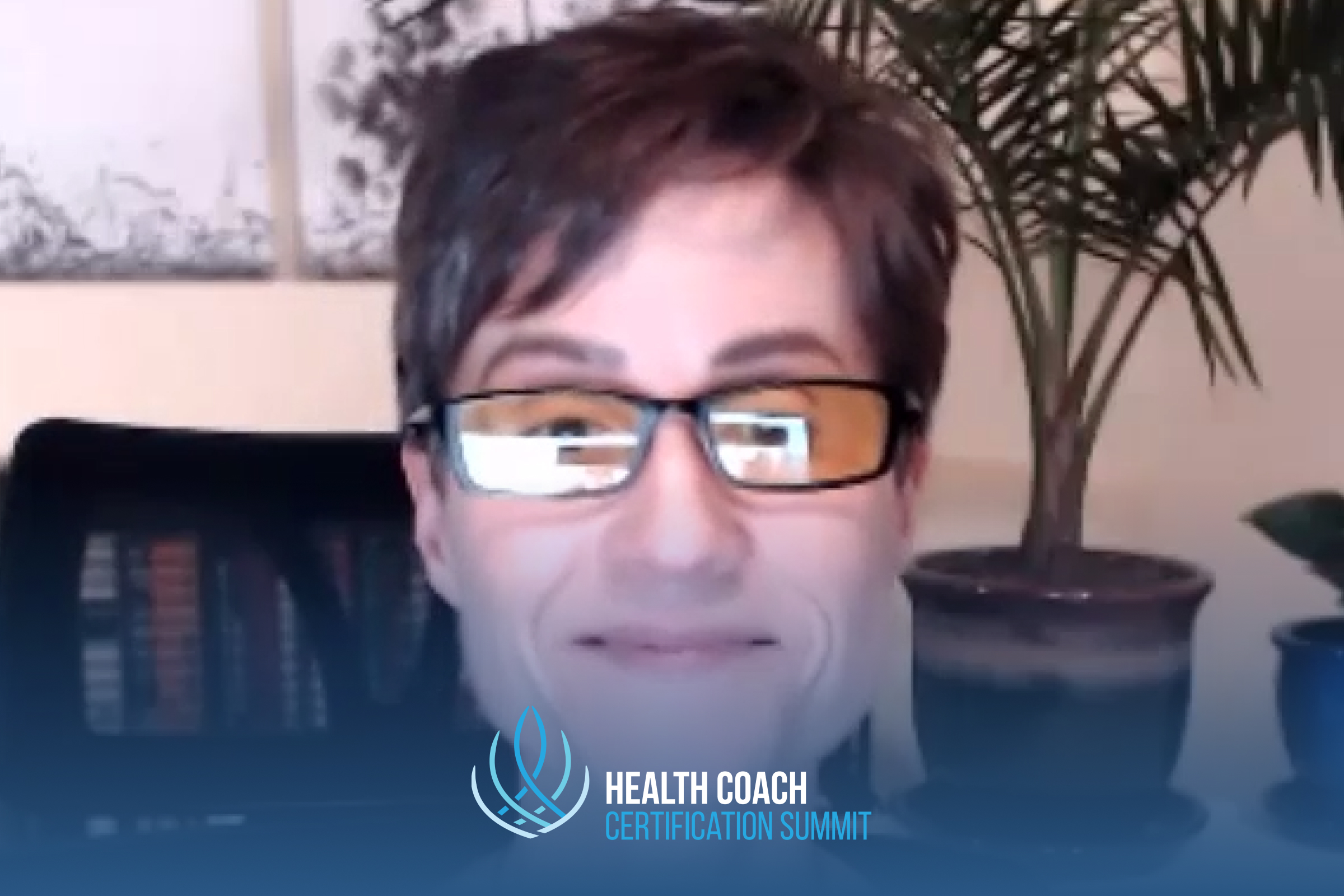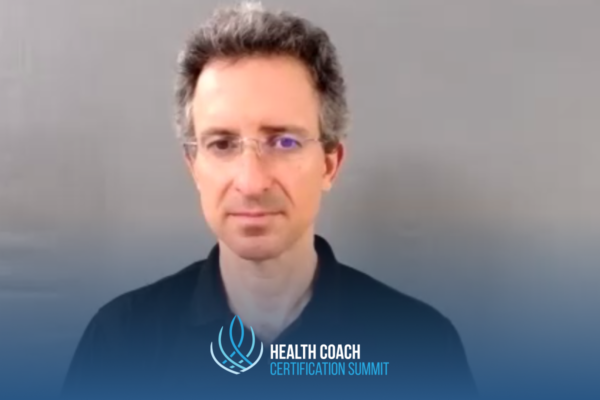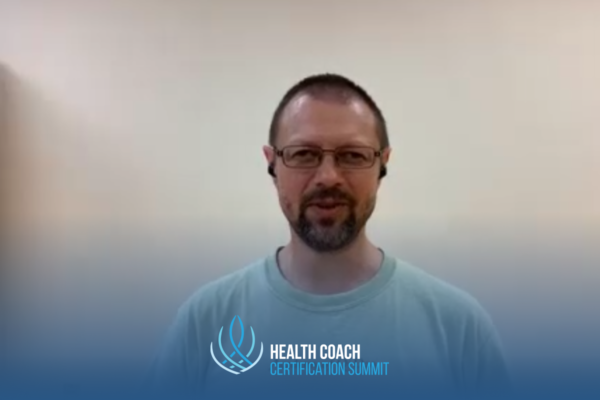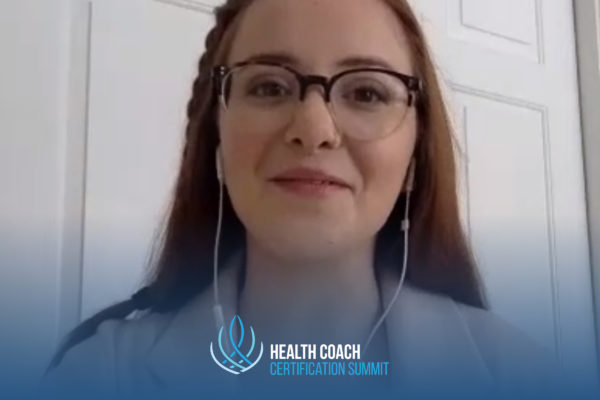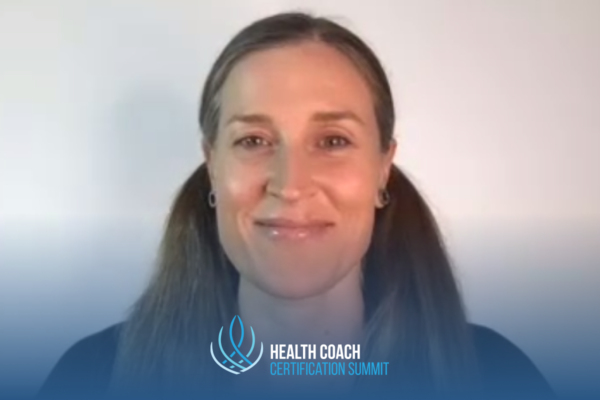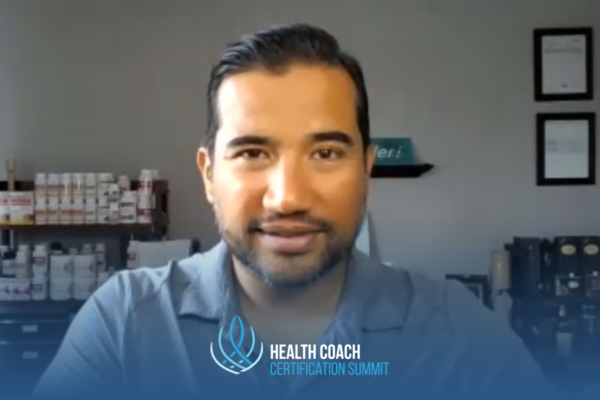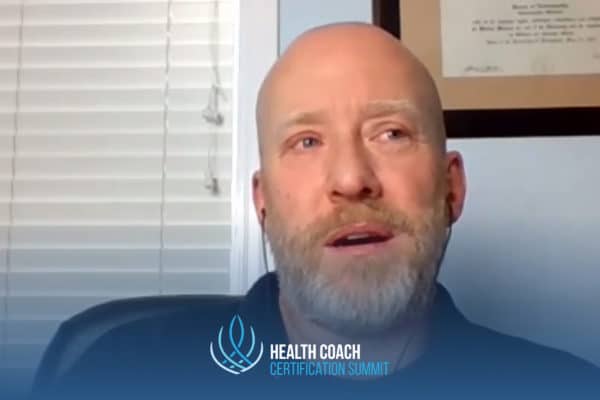Join the discussion below
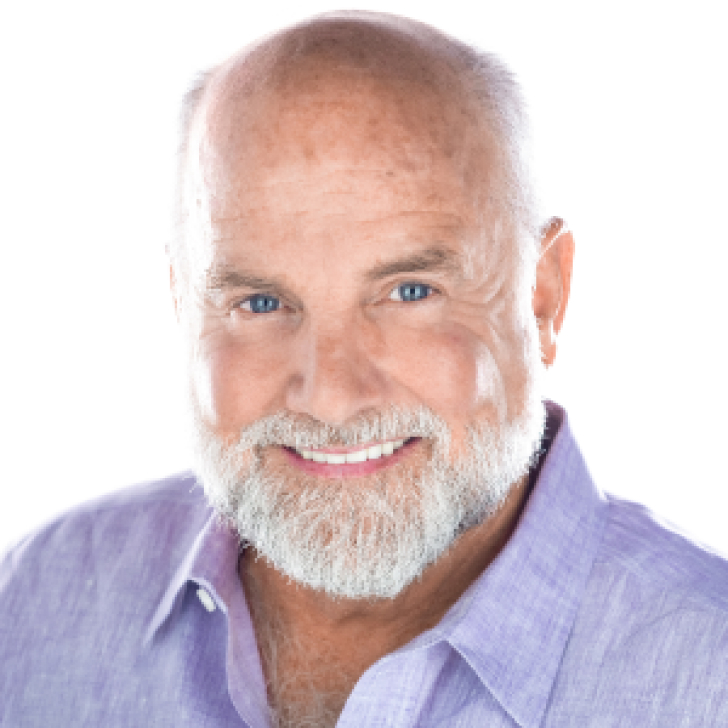
Reed Davis, Triple-Board Certified Holistic Health Practitioner (HHP) and Certified Nutritional Therapist (CNT), is an expert in functional lab testing and holistic lifestyle medicine. He is the Founder of Functional Diagnostic Nutrition® (FDN) and the FDN Certification Course with over 3000 graduates in 50 countries. Reed served as the Health... Read More
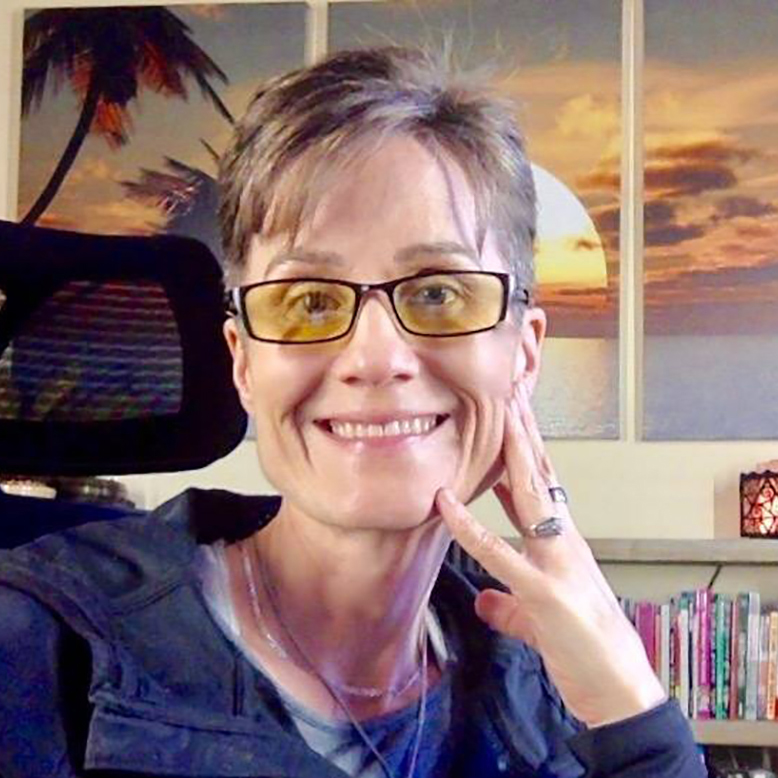
Jennifer Ellis-Schuetz is an FDN Practitioner and Transformational Coach that works with driven adult professionals who are struggling with chronic fatigue, digestive conditions, and brain health issues. She helps them identify and address the core issues keeping them stuck so they can regain their vitality and get back on track... Read More
The Wellness Code program is based on the concept of Transformational Coaching. The creation of this program arose from my journey with complex, chronic health challenges and my realization that recovery and creating sustainable wellness involves much more than biochemical-based interventions. While lab tests, diet changes, detox protocols, and supplements are indeed integral components to the healing process, most people need much more than these. Many need, (although they may not realize it), dynamic coaching and support that empowers them to step into their personal power, become their own best healers, and authors of a life that they’re excited to get up for each morning. In light of this, this program arms participants with a wide array of knowledge, tools, and strategies that will take them beyond dietary interventions, lab testing, and supplement protocols and deep into the realms of mindset, circadian rhythm, personal responsibility, autonomic nervous system rebalancing, the gut-brain axis, mind-body applications, energetic applications, neural rewiring, healing trauma, habit change, exploration of self, and more! Participants will walk away from this program with new perspectives around how people get sick in the first place, but more importantly, how to create the foundation for and activate the body’s innate healing ability. This is the definition of Transformational Coaching and our current healthcare paradigm, including the Functional Health space, is in desperate need of more of this approach.
Reed Davis, HHP, FDN-P, CMTA, CNT
Welcome back and thanks for being here to this event. It’s really been amazing so far today I’m really looking forward to talking to Jennifer Ellis-Schuetz, MSc, FDN-P Ellis-Scheutz. Jennifer Ellis-Schuetz, MSc, FDN-P’s a friend of health coaching from way back. We’ve known each other a long time. Jennifer Ellis-Schuetz, MSc, FDN-P is an FDN practitioner and transformational coach that works with driven adult professionals who are struggling with chronic fatigue, digestive conditions and brain health issues. She helps them identify and address the core issues keeping them stuck so they can regain their vitality and get back on track in their life. Of course, that’s what health coaching is all about. She’s also a trainer and educator for fellow practitioners, so that’s primarily why I had Jennifer Ellis-Schuetz, MSc, FDN-P come on our show here. And aside from her private functional health coaching practices that said, Jennifer Ellis-Schuetz, MSc, FDN-P’s been working diligently for the past two years on creating this Wellness Code Academy and that’s really going to be interesting as we go through and I’m going to ask her lots of questions about it. The Wellness Code Academy offers online courses and programs for both lay people and fellow health and wellness professionals. So, I want to jump right into a Jennifer Ellis-Schuetz, MSc, FDN-P here, and thank you for being on today.
Jennifer Ellis-Schuetz, MSc, FDN-P
Thank you for having me. It’s my pleasure to be here. I’m super excited for this interview. Super excited to see where this health coach summit goes and just ready to dive right in.
Reed Davis, HHP, FDN-P, CMTA, CNT
I know you’ve been a big helper for many, many years and I want you to tell us a little bit about your background that would be normal for an event like this. And, how did your background help you become the teacher and trainer that you are today?
Jennifer Ellis-Schuetz, MSc, FDN-P
Yeah, so there’s two significant parts to my background. And we’ll start with the part that I fell deep down into the rabbit hole of chronic illness at the tender age of 26 years old. While it was unbenounced to me that I had fallen deep down into the, into the rabbit hole of chronic illness at that age, but I indeed did. And it was the journey my, it was the start of a journey that continues to go on to this day as I continue to heal from the ravages. But long story short, I went into my first of many what they call, the medical profession called, idiopathic anaphlyactic episodes where that landed me in the intensive care units on, you know, life support sometimes just all, well if you’re familiar with anaphylactic shock, it shuts all systems down in the body. And I bounced around Western medicine for probably about six years, going from immunologists, to allergists, to internal medicine, to you name it I saw them.
Went to Mayo clinic, went to everywhere and I never got any answers. The list of prescription drugs kept growing longer and longer with steroids being at the top of that list. And with each passing year I got worse and worse. And I was probably though considered like super high, super sick, but super high functioning because this whole time I was building my career as a high school teacher and varsity soccer coach and at-risk counselor. But it’s like I had a double life, you know, during the day I was this driven career woman and when I was not at work and in the evening time, weekends I was navigating the world of very severe, life threatening, chronic health challenges.
And after I realized that Western medicine didn’t have much to offer me at about the seven year mark is when I kind of turned into the holistic and integrative direction. And that’s when I was ultimately diagnosed with chronic neurological disseminated Lyme disease, chronic inflammatory response syndrome, mold illness. I had all these chronic infections. My gut was a mess, hormones were a mess and that was my entry into kind of the world of functional medicine as a lay person. And, you know, I kept trucking and trucking and learning all I could from a lay person perspective. And I still didn’t get, you know, I ended up doing lots of IV antibiotics with integrative docs and so forth and many different protocols.
And I’m not exaggerating. Over about the course of 12 years, my husband and I spent at least $300,000 out of pocket trying to figure my situation out, it was very complex and it ultimately led to me having a nervous breakdown. Because I was a high school teacher, a Spanish teacher, head girls varsity soccer coach and an at risk counselor while all this was going on. And I had achieved a master’s, a master’s of science degree in counseling and psychology. So, it brought me to my knees. You know, I lived this very high stress career. I, you know, I worked in a very high stress career while also navigating the world of a very high stress illness.
And in 2012 I crashed and burned into a complete, utter nervous, physical, mental, emotional, spiritual, and financial breakdown that led me, that left me bedridden for the better part of a year. And that at that point is when I found FDN, I was like, I need to figure this out for myself. I found your program. I found many other, I just started studying everything that I could about the human biochemistry, physiology, mind, body, medicine, the psyche, you name it. I was like, I’m going to figure this out. And slowly but surely, you know, I dug myself out of a very deep hole and I was like, wow, I’m going to make, now I’m going to turn this into a career. So, I’m going to turn my experience into a career. And my background of being a teacher and a coach and a counselor absolutely plays an integral role.
Reed Davis, HHP, FDN-P, CMTA, CNT
Yeah, Jennifer Ellis-Schuetz, MSc, FDN-P, that’s, that’s really quite a story. And you know, so many of us come to the health coaching field or related field, you know, cause of our own personal history and something you overcame, you know. So you, you were caught in that cycle of trial and error, spending your last dime so to speak, you know, on anything and everything that might help. But then you started studying and getting into some of these certification courses, including the FDN course. And I don’t want to toot my own horn, but I’m glad that that was part, at least part of how you became a health coach and helping others. And I know a bit about the history since then. You know, you’ve done very well in business for yourself as a health coach, but I want to move on if we can, to the program that you have, the wellness coach certification program. What was your motivation to create that?
Jennifer Ellis-Schuetz, MSc, FDN-P
Yeah, so great question Reed. So, my motivation to create that really arose out of my desire to bring forth my 20 plus years of knowledge both as a patient and as a professional in the industry, to provide the aspects that I so desperately needed in my own journey but never quite found, to be honest with you. I worked with many, many different practitioners and I’m not going to say any of them were bad. They all brought great stuff to the table, but none of it put, brought it together in a way that I needed in order to find my way back to health and wholeness and create sustainable wellness in my life. There were lots of gaps. And the biggest gap was, was just the support and guidance I needed. You know, I had a lot of practitioners, they ran labs and handed me supplement protocols and said, okay, we’ll see you in three months. Well, what happens in that three months time is, is going to make or break whether that biochemical based healing protocol is even going to work. You know, I wasn’t educated on so many things that I needed to be educated on. Again, no fault of the practitioners. It’s just, that was sort of the paradigm at the, at that time. But the paradigm has shifted and it’s all about, I now believe that it’s all about working with clients in a way that, that helps them to tap into their own self power and become their own best healers. And that involves educating them on what is truly required to do that.
Reed Davis, HHP, FDN-P, CMTA, CNT
Yeah, that’s fantastic. You know, once you get, some experience and some education under your belt, you know, you find that you do want to create, more, more unique programs. Certainly we’ve known for a long time, it’s not just about the supplements and oh, 20 years ago I gave up that method of just take this for that. That’s what people are sick and tired of. They really want transformation. And I noticed in your, in your handle that you have that in there, you know, so you’re an FDN practitioner and you’re a transformational coach. So, tell us a little bit, so and I could see, you know, you were motivated because you struggled even though you had training with some of the business aspects, how to actually work with people one on one, how to make it their program, as you said, how to tap into their power. So, tell us more about that. What’s unique, what’s different about the wellness coach certification program then, then any other that’s out there and how will it help professionals, like who are listening, to improve client outcomes?
Jennifer Ellis-Schuetz, MSc, FDN-P
Yeah, for sure. So, the big thing is, is that my program, while it definitely emphasizes the importance of, you know, the biochemical, it takes practitioners so far beyond, like, I have a coin phrase BB, going beyond the biochemical. Okay. Like, yes we’ve figured out that there’s, you know, your, your, your guts riddled with parasites. You’ve got hormonal imbalances and you’ve got some bacterial issues and you’ve got some mast cell issues going on. So, we’ve, we’ve identified these things but now, and yes we need to clean up the diet and so forth, but let’s, let’s go beyond that and let’s take a deep dive into the trauma that you have experienced in your life that is still lodged in your body and playing out as energetic imbalances that are preventing anything you do from a biochemical standpoint, from even working and keeping your nervous system locked into a perpetual state of fight or flight.
So, I would say my program takes practitioners into deep realms of working with clients on all aspects that I feel are missing gaps within the functional health space. So, it goes deep within the realms of, of educating clients about circadian rhythm and everything that they can do to reset their circadian rhythm, reboot their nervous system, explore experiences in their life that are, have become deeply entrenched programs within their subconscious mind body system that are kind of running the show behind the scenes and keeping them, you know, stuck in these, in these destructive patterns. And looking at habit change and just really taking clients on a journey to look deep into all aspects of their life that could be creating the terrain for chronic illness to exist.
Reed Davis, HHP, FDN-P, CMTA, CNT
Mm-hmm. Well…
Jennifer Ellis-Schuetz, MSc, FDN-P
And, yeah.
Reed Davis, HHP, FDN-P, CMTA, CNT
Oh, go ahead. I mean, I could understand that. So, that is going to help the health professional improve client outcomes by just getting deeper into that, each individual person. How, how is it transformative, like in terms of did people work on themselves like does…
Jennifer Ellis-Schuetz, MSc, FDN-P
Oh, 100%.That first and foremost, the program is transformative in that it takes the practitioners who are enrolled in it through a journey of deep self exploration. I have a curated book of daily neural rewiring writing prompts that I have personally written myself. And that’s just one aspect of it. But I go deep into teaching tons of different mind body tools for reprogramming the mind for wellness and personal success. I teach a lot of mindset hacks on, on cultivating the mindset for healing and personal success and everything. So, I ask the practitioners to first implement all of this material, and these strategies, and these tools, in your own life. Because we all, you know, we all still deal with stuff, whether it’s mental stuff, emotional stuff, physical stuff. And in order for a practitioner to truly, you know, get down into the trenches with a client and walk them through the journey of creating sustainable wellness in their life, we have to do it first. And so, yes, it’s transformative in that that’s part of, that’s a requirement of the program. They have to do all this. They have to do the writing prompts, they need to implement all the tools, they need to reflect on them and so forth, before they can implement it with clients.
Reed Davis, HHP, FDN-P, CMTA, CNT
I understand that. I mean that’s a big part of it. In our course, you know, we teach a lot of lab work and then the, the trainee has to do the lab work on themselves. I think that should be probably true with just about every course. How does that help your graduates on a professional level?
Jennifer Ellis-Schuetz, MSc, FDN-P
So, aside from the regular curricula in the program, which just some of the modules are like calming the stress response and rebooting the nervous system, tapping into the subconscious mind and getting answers from the energetic body. These are just a few of the modules I’m rattling off. I also offer quite a bit of professional development training in the live integration sessions, both from the coaching perspective. I teach aspects of motivational interviewing and positive psychology as to better arm them with skills and strategies to actually coach, coach clients. The actual coaching, working with the human psyche, you know, helping clients overcome hurdles of, I can’t stick to this elimination diet, you know, I can’t make these changes.
So, there’s a lot of, there’s a lot of hurdles to be worked with, with clients, but then also the business development side, you know, to build and grow a successful health coaching business goes way beyond, as you and I both know, just studying health coaching and working on ourselves. It’s requires organization skills, system skills, you know, a lot of skills that are just super important. So, I bring into the integration sessions, you know, I bring in strategies for where and how to get clients, how to organize your business, how to onboard clients, how to create effective intake forms that you know, gives you all the information you need, especially in terms of going beyond the biochemical. How to create and execute a dynamic coaching session. Because remember, I’m a teacher, so I come here with 20 years teaching and curricula design experience. So, I am teaching my practitioners how to apply these principles to their work with clients so that they can be super dynamic and, you know, really move these clients forward and up-regulate their self efficacy, meaning the self-efficacy of the client.
Reed Davis, HHP, FDN-P, CMTA, CNT
So, it’s, that’s fantastic. And I, I hear you on everything. It seems like you kind of scanned some of your modules. How many modules are there? And can you to go into, just a little bit more detail about one in particular you think is really your, your best, game, if you will.
Jennifer Ellis-Schuetz, MSc, FDN-P
Gosh, Reed that, I don’t know if I can give you one in particular as I think they’re all my best game. There’s 16 of them. It’s a 16, yeah 16 module program spread out over six months.
Reed Davis, HHP, FDN-P, CMTA, CNT
Oh wow.
Jennifer Ellis-Schuetz, MSc, FDN-P
It is quite rigorous. Yes, it’s, it’s very in depth, but it starts with module one is cultivating the mindset for healing and personal success. And I really pride myself on that because I came to understand in my own journey that until we make shifts mentally and energetically, it’s very hard to make them physically. And I truly believe that chronic health challenges begin in the mental, emotional, and energetic realm before they manifest in the physical realm. At least that was my experience. And so, we need to start working
on that simultaneously while we’re hacking the physiology of the body. Right. And so, you know, I go deep into, into that and really present my practitioners with some solid skills to bring to the table and tools to use in coaching sessions.
Like I’m giving them tons of tons of tools to use in coaching sessions to really move clients along in that regard. So, that’s number one. And then we go from there and to optimizing sleep and resetting the circadian clock. And the next module is cell danger response and shifting the body from defense into peace mode, which is also energy producing mode. And that goes deep into the realms of mitochondria. And then we come out of that, we go into calming the stress response and rebooting the autonomic nervous system. So, I teach all about the role of imbalances within the autonomic nervous system and how that factors into creating all this other chaos in the body.
Reed Davis, HHP, FDN-P, CMTA, CNT
Let me ask you this. We’re going to give you, of course, our listeners a chance to review it and we’ll put some links into the show notes and things like that so they can take a look at that, Jennifer Ellis-Schuetz, MSc, FDN-P. But just generally, what’s the format? Is this on a, similar to the one I use? Or how does, is it on, is it weekly meetings? Is it that kind of asynchronous thing?
Jennifer Ellis-Schuetz, MSc, FDN-P
It’s both. So, it’s a, it’s a combination of prerecorded videos, PDF companion guides, handouts, checklists, you name it. And that’s all self paced. But yet when I say self paced, they still have to complete things by certain benchmarks, but they can listen to the videos at their own time, you know what I mean, on their own schedule. And then yes, we also, I also have live, weekly live integration session for 90 minutes where we actually spend time discussing case studies, talking about the content, troubleshooting, live Q&A, but then I’m also bringing in lots of other stuff that’s not, not in the core curricula like the business development. How to create awesome intake forms, and how to structure coaching sessions, and motivational interviewing techniques, and positive psychology techniques and many other business building strategies. Like where to find your clients and how to get them and how to effectively write social media posts.
Reed Davis, HHP, FDN-P, CMTA, CNT
Jeez, that sounds really complete. You’ve really been around the block. I know. I’ve been watching you for, for years become a very good, an outstanding practitioner and, you know, what you’ve done is find pieces of the puzzle that are missing from other programs out there. And with your own way of looking at it. And what, what does it take? What are the requirements of the certification?
Jennifer Ellis-Schuetz, MSc, FDN-P
So, the requirements of the certification are obviously to engage with and complete the content, in a timely fashion. Some modules we allow one week and some I allow two weeks. And then, you know, sometimes people need a little longer than that, so forth. But everything needs to be completed within, you know, six months. Then there’s the weekly live integration sessions where it’s expected that people show up and participate and, you know, ask well thought out questions and offer insightful contributions to the discussions. And, and then there are assessments with each module that, there’s three parts to them. There’s a self reflection.
They need to self reflect on their own journey with implementing the tools and the, and the neural rewiring writing prompts. Then they’re short answer questions around the module material. And then there’s typically always like a real world client scenario where, okay, this client comes to you, they’ve got this going on. These are their wellness goals. And then I ask them to like create maybe a brief wellness plan, some preliminary action steps, taking into consideration the current module material that we’re in. So, I really try and make it very applicable to what they’re doing in their work.
Reed Davis, HHP, FDN-P, CMTA, CNT
Beautiful.
Jennifer Ellis-Schuetz, MSc, FDN-P
And then, there will be a final interview where they will be asked a series of, it will take place in a Zoom meeting like you and I are doing now. Where they will be asked a series of short answer questions about the module content and then there will be a mock coaching session. They will have been given the scenario ahead of time like you did in, in FDN and then they will need to come prepared and coach me. I will play the role of the mock client and they will play themselves as the practitioner and they need to coach me through the coaching situation based on what I gave them.
Reed Davis, HHP, FDN-P, CMTA, CNT
Yeah. Good. You do the role playing much like we do in the FDN course. Now, who would you say is your current sort of target audience for the certification?
Jennifer Ellis-Schuetz, MSc, FDN-P
So, my current audience I would say are, can be both aspiring health coaches. This could serve as a great well-rounded first program that could springboard somebody into the health coaching business. And it is also great for seasoned health and wellness pros that are looking to fill in gaps, improve client outcomes and take their wellness businesses to the next level. And I would also say that another niche that I’m
going after, or niche, however you want to say it, is medical doctors that have been trained in the Western allopathic way that have made their way into the online space and they want to become more progressive with a more holistic approach. This would be an excellent program for that population.
Reed Davis, HHP, FDN-P, CMTA, CNT
Yeah, no doubt.
Jennifer Ellis-Schuetz, MSc, FDN-P
And I would also say that this program would be great for very highly motivated, well-read, driven lay people that are looking to just want to take their own health into their own hands, but they don’t necessarily want to do the certification. So, they can go through the program and just not do the certification and that will be at a cheaper price.
Reed Davis, HHP, FDN-P, CMTA, CNT
Okay.
Jennifer Ellis-Schuetz, MSc, FDN-P
For people that want to do that.
Reed Davis, HHP, FDN-P, CMTA, CNT
We’ll let you explain some of those details when people contact you, and again, we’re going to everything into the show notes. Let me ask you a couple more questions. Switching gears slightly because my purpose in putting together this, this type of event and bringing together certification courses, was really designed to create some leadership in the health coaching world. You know, I really think that there’s some standards that need to be brought in. Besides teaching your course, what do you feel like you should be doing? What are you doing? What do you feel like we should be doing to provide leadership in the health coaching space?
Jennifer Ellis-Schuetz, MSc, FDN-P
Yeah, so I’m doing lots of things. First off, I’m, I’m creating the entire Wellness Code Academy. So I’m, the, the Wellness Code Certification program is the first and flagship program of an entire Academy. Which is, you know, going to provide a massive resource for both lay people and practitioners in all things, functional health, mind, body medicine, mindset, personal growth, trauma recovery, practitioner trainings, and so much more. So, this is a massive lifelong endeavor and definitely a passion of mine. And I always tell people, you can take the teacher out of the classroom, but you can’t take the classroom out of the teacher. I was born, I’m a born teacher, so I, I truly believe that I belong teaching groups of people.
So, aside from doing that, which is huge, I also have a podcast. Currently called the Empowered to Heal podcast. I have a video blog where I post weekly video blogs on different content and every month I do a different theme. Like the month, the, this month’s theme is optimizing immunity with self care in the spirit of COVID-19 that the world is facing right now. I have my one on one coaching practice where I continue to work with one on one clients, although on a much lesser scale now because of how busy I am with these other endeavors. And I continue to advance my own learning. I’m currently enrolled in the GAPS Practitioner Training program. So, I’m just really a lifelong learner.
Reed Davis, HHP, FDN-P, CMTA, CNT
And most teachers are good learners too. It’s a wonderful thing. So, let me ask you about that cause I mean I really want to sort of dig deep here a bit and go, what, what do you think are the top sort of standard practices that a professional health coach must follow? If we could give any leadership advice to people who are aspiring health coaches or health coaches who are still shopping around a bit, you know, or maybe they’re not as successful as they’d like. What are their top standard practices? If you have any.
Jennifer Ellis-Schuetz, MSc, FDN-P
Yeah, I do. I absolutely do. First and foremost is you gotta walk the walk. You can’t just talk the talk. Okay. Because…
Reed Davis, HHP, FDN-P, CMTA, CNT
I would put that number one for sure.
Jennifer Ellis-Schuetz, MSc, FDN-P
That is absolutely number one, man. Like you need to be, if you’re teaching clients about circadian rhythm, then your butt better be in bed at least by 10, and you better be, you know, getting some natural sunlight those first 30 minutes upon waking and you, your diet better be clean and you better, you know, you gotta walk the walk, you can’t, the vibration, people will pick up on the vibration if you’re not walking the walk. Right. And, yeah, and you just need to be authentic and genuine and totally transparent. After that, I would say, yeah, after that, I would say being a lifelong learner, which means staying up to date with the latest developments, research and trends within the functional, within functional medicine science, neuroscience, mind body medicine, trauma interventions, various coaching modalities such as motivational interviewing.
And then I would say also realizing the importance and need to go beyond biochemical support when it comes to health restoration. You know, while investigating and addressing hidden biochemical imbalances is definitely integral and needed. It’s just one piece of the puzzle in terms of helping someone create sustainable wellness in body, mind and spirit. So, you know, super, super important. I would say those, those is, those are, those are the most important in my opinion.
Reed Davis, HHP, FDN-P, CMTA, CNT
I think you’re right. Just on a little bit deeper on, on one of those things. What would be the required trait of a health coach to separate him or herself from those that do it more or less as a hobby? What I noticed is a lot of health coaches, they say I’m a health coach, but they don’t really have a business. They just kind of help friends, family, and maybe a customer or two here and there, but I wouldn’t consider them professional, so to speak. Do you have that same feeling? Would you want to say what required traits of a true professional are or what separates the two?
Jennifer Ellis-Schuetz, MSc, FDN-P
I absolutely have a list right here in my mind for you. So, first and foremost is extensive and comprehensive training along with continuing professional development. Next, highly developed teaching skills because a health coach is absolutely an educator. We, we are not prescribers. We’re not prescribing things to clients, you know, we educate them so that they can become their own best healers. Then, also a health coach, a true health coach is a supporter and a guide and an inspire-er. It’s not a savior. Truly, a truly effective health coach works with clients in a way that enables them to, like I said earlier, tap into their own personal power and develop their own sense of self efficacy so that they learn the skills to get well and stay well, and create sustainable wellness and personal success in their lives.
And that requires a teacher. Okay. Next, I would say being a true professional health coach requires strong work ethic, dedication, perseverance, organizational and system skills and tech savvy, because being a health coach is more about just studying, taking a program of study and then dabbling in it. As you said, with friends and family. You, you know, building a business is hard work. You need to, you need to be your own boss and you need to have set standards and you know, get up and do things even though when you don’t want to do them. Also I would say a willingness to step out of one’s comfort zone and put yourself out there in the online space. Make video, you need to get, get used to the idea of being uncomfortable and taking criticism, okay. Because the only way we build confidence, the only way we build confidence is to get out and do it, fall on our face, pick ourselves up, brush ourselves off and keep going. That’s where confidence comes from. It doesn’t come from constantly being praised and staying in your safe zone.
Reed Davis, HHP, FDN-P, CMTA, CNT
Yes, I’m with you.
Jennifer Ellis-Schuetz, MSc, FDN-P
So, I would say having a strong tolerance for ambiguity and criticism coming from haters because you’re going to find them. If you’re putting yourself out there, they’re going to find you and then be an out of the box thinker, flexible and adaptive because there’s no such thing as a standard approach to health restoration. It’s all about bio-individuality. You got to work with the client in front of you, not the lab test, not a stagnate. My client’s got SIBO. What’s a standard protocol for SIBO? There isn’t one. Okay, so I would say…
Reed Davis, HHP, FDN-P, CMTA, CNT
That’s right. So, glad you said that Jennifer Ellis-Schuetz, MSc, FDN-P. You know, I see online all the time too other things like, hey, I’ve got a client with this or that and it’s usually a medical diagnosis that they don’t know anything about. And what I’ve tried to emphasize is that’s a medical diagnosis. That’s not what we do. We help them heal on every cell, tissue, organ system, entire organism heals in a non specific manner. When you, when you coach up function, you, you provide good nutrition and you mentioned, so importantly it’s the sleep habits and the right amount of exercise. And then finding all the stressors and hidden stressors, supplements are, can be important too.
So, we don’t care what their medical diagnosis is. It’s, we’re going to create a foundational health program that if that’s a true diagnosis, well they’ll need less medical attention. And if it’s not a true diagnosis, it’ll just go away. You know, if you just live, if someone has lived them self into a problem, they can live them self out of that problem. And that’s what health coaching is and it absolutely takes every single thing that you said, you know. And, and we’re probably leaving something off, but we’ll come back to it. We’ll circle back another time. And, but it’s something I’ve been, I’m asking people because I truly want people to have strong deliverables on the recordings.
And as a matter of fact, if you, makes sure that you take it, I’m talking to the listeners now, take advantage of the very special offer to get the recordings now while the event is still happening. Because once the event’s over, you won’t be able to get the recordings at all. So, please take advantage of that. Again, look down in the show notes, you’ll figure it out. And, Jennifer Ellis-Schuetz, MSc, FDN-P, it’s been a real pleasure. I knew you were going to be a great interview.
Jennifer Ellis-Schuetz, MSc, FDN-P
Well, you’re a great, you’re, you’re, you’re, you’re, you’re a great question ask-er. So, you’re a great host. So, thank you for having me. I hope I did my program justice. You know, I’m sure there’s lots of, after the interview I’ll probably be like, oh I forgot something.
Reed Davis, HHP, FDN-P, CMTA, CNT
If, well listen, if you have, listen if you have something else, you know, if there’s particular goals you’d like to see people set or something like that, feel free to elucidate, you know, I want you to feel like you’ve had our ear and that you said what you want to say about your course. You know, I think, I think there’s, for certification courses practitioners need to set some goals. Like you mentioned how important is to be a good professional. You have to keep getting training. Then you go teach and then you come back and get some more training. Then you go teach. Are there any other goals of your course you’d like to explain to anybody?
Jennifer Ellis-Schuetz, MSc, FDN-P
Yeah, you know, I think my closing comments would be this and this, this goes for both lay people and practitioners. And it’s a lesson that I learned in my own journey and that, you know, I was doing, well as far as I was concerned at the time, doing everything right to get well. You know, I was seeing the right professionals, taking the right supplements, running the right labs, implementing the right diet. But yet I remained very stuck. And it was because, it wasn’t until I took a hard, long, hard look at aspects of myself and my life because there were a lot of things that I was doing that was standing in the way of me cultivating good health in my life that I just wasn’t aware of, because I wasn’t aware of it.
You know what I mean? And so, if, if, if you’re stuck, whether you’re stuck in your business, whether you’re stuck in your marriage, I don’t care wherever you’re stuck, okay. Your health, your business, your marriage, whatever it is, you know, you have to go within and really explore patterns about yourself and your life that are serving to keep you stuck. Because in, in, if, if we don’t do that, we continue looking outside of us for the answers and depending on things outside of us to fix us, and It’s just not the case. And that’s, I’ve built my business on that premise and everything.
Reed Davis, HHP, FDN-P, CMTA, CNT
Well, thanks so much. We’ve been talking with Jennifer Ellis-Schuetz, MSc, FDN-P Ellis-Scheutz and Jennifer Ellis-Schuetz, MSc, FDN-P, I want to tell you, you did a fantastic job. You’re looking great. You know, no one would ever know you had a health problem looking at you and yet you’re so forthcoming, you’re so willing to put your cards on the table, and I think that’s a beautiful thing. And I know how hard you’ve worked to, to get to that point. So, thank you for putting that program together, by the way. I know that another thing we didn’t talk about that’s worth mentioning is, health coaches, you know, they’ll find programs that resonate with them and they’ll sort of find their home. You know, that’s been very, very true with the FDN course. People, as soon as they start taking the course they get into one module and they go, this is what I’ve been waiting for my whole life. Now I don’t, but I don’t resonate with every person that way. But I like to say most people feel like they found their home and then they want more training.
So, anyone that’s taken my training probably gonna find yours next or anyone that takes your training, they’re eventually going to circle around to mine. That’s another thing I think that we need to do as leaders in the health coaching field, those of us with certification courses, is to work together and expand the number of people who are coming into the health coaching field. Certainly God knows that the world needs it. I mean, guess who’s surviving COVID-19, the healthy people, you know, the ones who’ve been on these programs and stuff. The ones who don’t have co-morbidities. I don’t like that term, but there you go. And so, I think we’re all doing a good job. And well, you know, you got to share the love. So, thank you for all that you’re doing. I really appreciate it.
Jennifer Ellis-Schuetz, MSc, FDN-P
Yeah, no and thank you for all you’ve done and continue to do. And I, I feel that my program and your program are like the perfect combination. It’s like, you know, you teach, you teach the clinical lab stuff, how to read the labs, how to, you know, what I’m saying and how to coach up function and so forth. And then I come in and kind of plug in, you know, everything that you couldn’t possibly put into one program, otherwise it would be like a four year degree, right.
Reed Davis, HHP, FDN-P, CMTA, CNT
Oh there’s, there’s no one program, you know, I tell people that about lab testing, I say, well they go, well, what labs should I run? I go, there’s no one lab. You know, there’s so many different, there’s the hormone, the immune system, digestion, detoxification, energy production, the nervous system. There’s, you know, blood, saliva, urine, stool. There’s all these ways to look at things. So, you have to be able to line people up, onboard people properly so that you can just start working a system. If it’s step by step, as I know yours would be, that’s the way to do it, you know, so, so that you’ve got, you’re not just throwing something against the wall and seeing what sticks or trying this and trying that. We, we brag that we stop the cycle of trial and error. And that means, you have to have a, you can’t just try this lab, oh shit that didn’t work.
Try this lab, oh no, that one didn’t work either. And pretty soon you’ve just done a new cycle. You’ve gone from trying all these different supplements, trying all these different exercise programs, trying all these different diets. Then you start trying labs and taking more supplements, you know, we don’t work that way. You know, it’s, it’s really step by step and it does require someone to look inside. And I do think there’s a lot of compliment there between the programs. So, thank you so much again, Jennifer Ellis-Schuetz, MSc, FDN-P, and we’re going to respect people’s time now and say goodbye, but I’ll look forward to the next time we talk.
Jennifer Ellis-Schuetz, MSc, FDN-P
Yeah and thanks for having me. And I can’t wait to listen to the summit when it comes out. So, thanks again. And you stay healthy, stay safe. Most importantly, stay sane against the craziness. What’s going on in the world.
Reed Davis, HHP, FDN-P, CMTA, CNT
That it is, thank you.
Downloads

